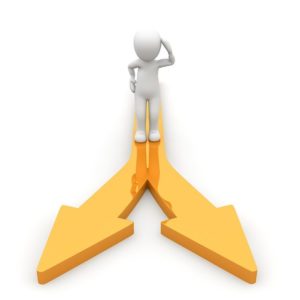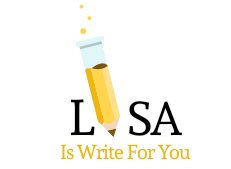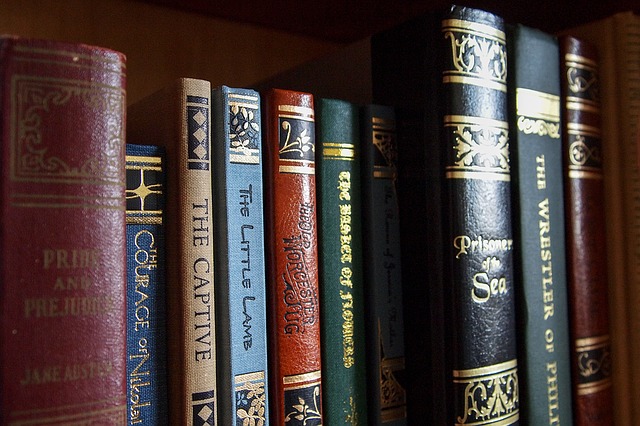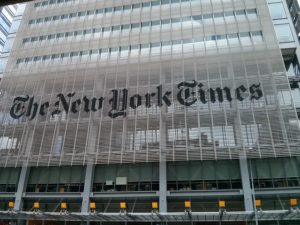Authors… it seems like everyone from the political world all the way to the musical world wants to be one and is writing a book these days to prove it. So… what does that tell you? That tells me that a lot of people have a story to tell and want to share it with the world! If writing a novel, or a short story, or even an autobiography is your passion- you have stumbled across the right article! Who knows… maybe you will become someone’s favorite author real soon and be among the list of the many famous authors!
How To Write A Book

If you have visited this website to its fullest, you have seen that a lot has been covered on the topic of writing and how to write. You have also read that one of the topics that would be gone over is how to write a book. Well, guess what? After going over some very important rules of writing- we are finally here!
Authors are among us in our everyday lives. Actually, everyone is really an author because everyone has a story to tell, but what sets real authors apart is wanting to share those stories and having a passion and a gift to create new ones.
Writing a book is really as simple as putting your thoughts and ideas on a blank piece of paper. After all, you will never finish your masterpiece if you do not start it. The first step, in my opinion, of how to write a book and to become a successful author is to first ask yourself- what do you want to write about.
There are many genres of writing to choose from so it will be important to figure out which is best for you and your style. Let us take a look at the many different writing genres or simply put, book genres.
Book Genres
As mentioned, it is vital to know what you want to write about before you can start on your first work of art, this is where the many book genres come into play. We are all here to learn how to write a book but first, you will need to know what you are going to write about. With that said, let us take a look at the options.
- Fantasy
- Science Fiction
- Romance
- Thriller
- Western
- Mystery/Suspense
- Detective
The book genres listed above are defined by topics that can fall under one or two categories which are fiction and nonfiction and then broken down even further into what is referred to as sub-genres, also called common genres.
- Fiction– A story that is considered nonfactual.
- Nonfiction– A story based on factual events.
Common Sub-Genres: Fiction
This genre offers non-factual information conveyed by imagination. Examples of this sub-genre are:
- Comics– A comic book or magazine usually consisting of hand-drawn pictures and words.
- Contemporary– Living or occurring at the same time.
- Fable– A tale, usually with supernatural or legendary animals used as characters that shows a useful moral.
- Romance– A genre that depicts a relationship and romance between two people with usually a happy ending.
- Horror– A story that evokes fear in the characters as well as the reader.
- Mystery– A fictional story that deals with solving a crime and/or a revelation of secrets.
- Classic– A fictional writing that has been labeled as accepted literature and is widely taught in educational institutions.
- Folktale– Myths, stories, songs, and proverbs of people or otherwise known simply as “folk” that has been handed down over time, typically over generations by word of mouth.
- Fantasy– Fiction that takes place in an unrealistic setting that often includes magic and magical creatures.
- Fairytale– Fictional stories about fairies and other magical characters.
- Humor– A style intended to entertain and evoke laughter.
- Drama– Genre where stories are composed typically for theatrical performances. This dramatic art form used emotion and conflict that is expressed in action or dialogue.
- Mythology– Stories of legend or tradition, typically of historic events that explore human behavior and natural events by way of symbolism where gods are normally at the center of these phenomenons.
- Poetry– This rhythmic genre can be written or spoken and is intended to captivate an emotional response from the listener or reader.
- Science-Fiction– A story that is usually set on other planets with a futuristic feel that is based on actual or potential science. Imagined science can even all under this genre.
- Realistic Fiction– A genre where stories resemble real life and real people that could have potentially occurred in a realistic and believable setting.
- Historical Fiction– A story that is set in a historical setting with fictional characters.
- Tall Tale– Entertaining and unbelievable story with obvious exaggerations.
- Legend– Normally speaks of a national hero based on fact but also incorporates imagination.
Common Sub-Genres: Nonfiction
This genre includes factual based information that deals with real-life and actual events or subject matter. Examples of this sub-genre are:
- Biography– A story that depicts someone else’s life.
- Autobiography– A story that depicts a person’s own life told by that person.
- Memoir– A collection of memories that are understood to be factual that is written by someone of events, which could be private or public that took place in that individual’s lifetime.
- Essay– A literary composition, usually short in nature that depicts the author’s viewpoint.
- Journalism– Form of writing that reports on the news and/or current events to be broadcast.
- Speech– Public address or discourse that is delivered to an audience.
- Owner’s Manual– An instructional manual that usually accompanies products such as vehicles, toys, home appliances, or powered tools for example.
With the many categories of book genres now covered, here is a little about my literary genre. I am no Nora Roberts, but my writing style of choice is adult, romantic fiction with a hint of erotica on the side. I also add in a splash of mysteries and thrillers to keep my reader’s eyes glued to each page. As you can see, I use many topics from the book genres list in my writings. Moving along, the next aspect of learning how to write a book is knowing and choosing an audience to target that shares your same style of writing even if it’s many.
Audience

Authors and especially famous authors typically have a targeted audience that lines up with their writing style. In simple terms, if you do not like horror then I would suggest that you do not read Stephen King novels, or- if you think romance is mushy, then I would not suggest any Nora Roberts or Danielle Steel novels.
Knowing how to write a book has a lot of moving parts and it is important that you have all of those parts aligned perfectly for any chance at success in this difficult field. Your audience will be based on not only your style of writing, or you different book genres – because you may have more than one, but your audience will also be based on your language tone and content. Simply put, targeting the wrong audience will result in bad reviews and zero book sells which equals zero royalties.
Types of Audiences
To the future authors reading this article, no worries. There is certainly an audience out there that will align with your writing style. When it comes to writing, the audience groups are generally broken down into three main categories. Let’s take a look,
- Young Adult Fiction– A fictional category that is intended and written for readers from the age group of 12-18. However, about half of the young adult category consists of adults.
- Children’s Literature– Also known as juvenile literature, children’s literature consists of poems, stories, books, and magazines that children of a variety of ages enjoy.
- Adult Literature– The subject matter is usually sexual in nature which requires a more mature audience. From the genres of literature list, romance would typically be the topic for this age group. The age range for this category is typically 18 and up.
As an author though, it is important to know the other age ranges that exist to not cross any lines with your potential audience, especially with children’s literature. The below guide represents age ranges that are typical but may vary depending on the parental style as well as the growth and development level of the child.
- Board Books: 0-3
- Picture Books: 3-8
- Coloring and Activity: 3-8
- Novelty or Pop-Up Books (depending on content): 3 and up
- Early Readers: 5-9
- Chapter Books: 6-9 (depending on word count) also 7-10 (depending on word count)
- Middle-Grade Books: 8-12
Famous Authors

The dream of all upcoming writers is to become a famous author one day, whether self-published via Amazon’s self-publishing platform or traditionally published. I included! For some authors, all it takes is one book or a series like now-famous author Meredith Wild who became famous from her self-published Hacker novels.
After self-publishing her first four series of the book, she hit the goldmine with a $7 million publishing deal with Grand Central Publishing that included the “Forever” print, which publishes a wide range of romance fiction novels targeted to a female audience.
Other famous authors include Stephenie Meyer’s, whose novel series, Twilight, a vampire-themed romance series, also primarily targets a younger female audience dominated the scene from 2005-2008 whereas, J.K. Rowlings Harry Potter series took hold of a younger audience as well as adult fantasy fiction lovers.
Famous authors are inspirations to all upcoming authors so it is important as inspiring authors to learn and mimic from the bestsellers. Stephen King, for example, has 20 rules for writers to follow. I am not going to list those 20 rules, but you can find them here.
Famous authors just like rising authors had to learn at some point how to write a book. And as the examples also show, each has their own writing topic from the many book genres that appeal to a specific audience. The key to becoming a successful author is just to start just like they did… so start!
What’s Next?

So, to all my future famous authors. What’s next? What is next is totally up to you. Your destiny is in your skillful hands- literally one word at a time. If you do not have an idea already from the style of writing you are interested in, the list of book genres and sub-genres should help get you started.
As a self-published author myself- with a decent number of book sells under my belt, I will share a few of my own tips that helped me get to the point that I am on my own. My hopes are that this will help inspire anyone who is seeking to become an author. Or better yet, to be among the best-selling famous authors because it is possible!
Lisa’s Tips
1- Find a quiet place and work on your book a little each day. Even if you are not inspired or motivated to do so. Just like with any job, as an author, you will have to push yourself even when you do not feel like going to work.
2- Learn and continue to learn from your literary mistakes. This will allow for growth during your journey of learning how to write a book and becoming an author. Remember, even the best of the best make mistakes. No one is perfect.
3- Think of a story that you would love to read that has not been written- now write that book.
4- Don’t be afraid or shy away from getting personal. You never know who will be inspired by your positive as well as negative life experiences.
5- Be ok with failure and/or negative reviews when sending in your manuscript for review. That is a part of this business. Professionally accept the feedback and move on. It is ok to hear the word “NO”. It should encourage you!
6- Be realistic in setting dates- whether that be for book releases, chapter releases, or sample drafts to an editor.
7- What people say does not matter. Don’t worry about what people think about your writing or your dream of being an author. The only one who needs to be happy in this process is you. The exception to this rule is if you ask for honest feedback from friends and family. In this case, accept the good with the bad, just like rule number 5 suggest. Constructive criticism- if the feedback is negative is a good thing. It will only make you a better writer.
8- Promote yourself! Unless you just have luck on your side, nothing is going to just fall in your lap. Your book is your business so use the tools available to get your name out there!
9- Know which book genres work for your style of writing and target that audience group to increase the chance of your book making it to the eyes of readers.
10- Keep writing! Do not… I repeat… do not stop writing if that is your passion. If one book is not successful that does not mean the next one will not be. It only takes one book to take off for your career to take off. It only takes the right set of eyes to read your work to take you from 0-100 so keep writing! If you need more inspiration go back to the famous authors’ section and re-read Meredith Wild’s story. Stay focused and keep writing!
11- The most important tip that I could share to make any of the previous ones work is to START your book so that you can FINISH your book and start on your NEXT one!
Happy writing!


